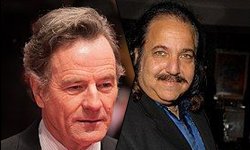BioGraph
Connecting Joseph Goebbels and Carl Jung
Joseph Goebbels
He continued for several years to try to become a published author. His diaries, which he began in 1923 and continued for the rest of his life, provided an outlet for his desire to write. The lack of income from his literary works (he wrote two plays in 1923, neither of which sold) forced him to take employment as a caller on the stock exchange and as a bank clerk in Cologne, a job he detested. He was dismissed from the bank in August 1923 and returned to Rheydt. During this period, he read avidly and was influenced by the works of Oswald Spengler, Fyodor Dostoyevsky, and Houston Stewart Chamberlain, the British-born German writer whose book ''The Foundations of the Nineteenth Century'' (1899) was one of the standard works of the extreme right in Germany. He also began to study the "social question" and read the works of Karl Marx, Friedrich Engels, Rosa Luxemburg, August Bebel and Gustav Noske. According to German historian Peter Longerich, Goebbels's diary entries from late 1923 to early 1924 reflected the writings of a man who was isolated, preoccupied with "religious-philosophical" issues, and lacked a sense of direction.
Julius Evola
Italian philosopher and esotericist
Though Evola rejected Carl Jung's interpretation of alchemy, Jung described Evola's ''The Hermetic Tradition'' as a "magisterial account of Hermetic philosophy".{{page missing|date=April 2022}} In ''Hegel and the Hermetic Tradition'', the philosopher Glenn Alexander Magee favored Evola's interpretation over that of Jung's.
Joseph Goebbels
The MI5 website, using the sources available to Hugh Trevor-Roper (an MI5 agent and author of ''The Last Days of Hitler''), records the marriage as taking place ''after'' Hitler had dictated his last will and testament.
Hugh Trevor-Roper
In attacking Arnold J. Toynbee's ''A Study of History'', for instance, Trevor-Roper accused Toynbee of regarding himself as a Messiah complete with "the youthful Temptations; the missionary Journeys; the Miracles; the Revelations; the Agony".
Trevor-Roper attacked the philosophies of history advanced by Arnold J. Toynbee and E. H. Carr, as well as his colleague A. J. P. Taylor's account of the origins of World War II.
Joseph Goebbels
To his chagrin, his rival Joachim von Ribbentrop, the Minister for Foreign Affairs, continually challenged Goebbels' jurisdiction over the dissemination of international propaganda.
Joachim von Ribbentrop
German foreign minister of Nazi Germany
In ''Famous Last Words'', a novel by Timothy Findley, Ribbentrop conspires with the Duke of Windsor, to kill Hitler, take over the Nazi Party and Europe. The Robert Harris novel ''Fatherland'' (1992) explores an alternate history where the Nazis won the war, and Ribbentrop is still the foreign minister.
Timothy Findley
His writing was typical of the Southern Ontario Gothic style — Findley, in fact, first invented its name — and was heavily influenced by Jungian psychology.
Joseph Goebbels
In November 1938, the German diplomat Ernst vom Rath was killed in Paris by the young Jewish man Herschel Grynszpan.
Herschel Grynszpan
Polish Jew, confessed killer of German diplomat Ernst vom Rath
Sendel Grynszpan was present at the 1952 Israeli premiere of ''A Child of Our Time'', Michael Tippett's oratorio about Grynszpan.
Michael Tippett
English composer (1905–1998)
He was saved from despair when, at Ayerst's suggestion, he undertook a course of Jungian analysis with the psychotherapist John Layard.







